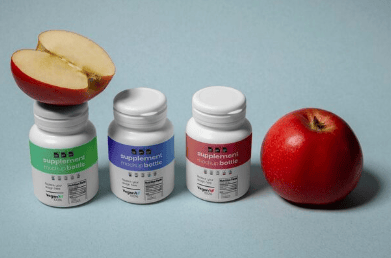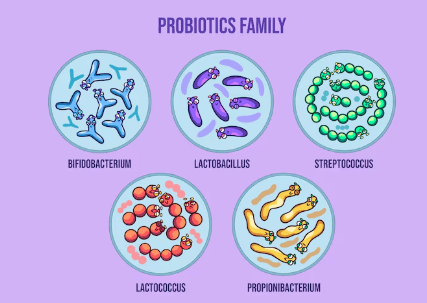Gut health isn’t just a wellness buzzword anymore—it’s a foundation for both physical and mental wellbeing. In 2025, more people are waking up to the reality that what happens in your gut can impact everything from your mood to your immune system. It’s no longer just about avoiding digestive discomfort—it’s about unlocking full-body vitality.
That’s why the gut health supplement market is evolving fast. While probiotics once dominated the scene, 2025 is seeing a wave of targeted gut solutions designed to support the microbiome in smarter, more personalized ways. Think prebiotic fibers, postbiotics, digestive enzymes, and even next-gen synbiotics crafted with data-driven precision.
This article takes a closer look at the top trending gut-supporting supplements of 2025—what’s new, what works, and what to know before adding them to your wellness stack. Whether you’re aiming for better digestion, clearer skin, or improved mental clarity, your gut could be the smartest place to start.
Why Gut Health Matters More Than Ever
In 2025, gut health is taking center stage in conversations around wellness—and for good reason. Your gut does more than digest food. It houses trillions of microbes that influence everything from your immune system to your mental health. This complex ecosystem, known as the gut microbiome, helps regulate inflammation, absorb nutrients, and even produce neurotransmitters like serotonin and dopamine.
The rise of the gut-brain axis—the communication highway between your digestive system and brain—has transformed how we view mental health. Anxiety, depression, and brain fog are increasingly being linked to imbalances in the microbiome. As a result, gut health is now central to integrative and preventative care, not just digestive comfort.
What’s different in 2025? People are turning away from one-size-fits-all fixes. Instead, there’s growing interest in personalized microbiome support, where diet, lifestyle, and supplements are tailored to individual needs. With advances in gut testing, AI-driven recommendations, and microbiome mapping, microbiome wellness has moved from fringe to front-line.
It’s not just about feeling less bloated—it’s about feeling more like yourself. And that all starts in the gut.
Top Trending Gut Health Supplements in 2025
The gut health market is evolving rapidly in 2025. It’s no longer just about basic probiotics—consumers now want smarter, more targeted solutions backed by science. From mental wellness to immune support, this year’s top gut health supplements are as innovative as they are impactful.
A. Psychobiotics
Psychobiotics are probiotics that influence mood, cognition, and emotional resilience. Unlike general probiotics, these strains are selected specifically for their role in supporting the gut-brain axis.
Two standout strains in 2025 include:
- Lactobacillus rhamnosus GG – shown to help regulate the stress response.
- Bifidobacterium longum 1714 – studied for reducing anxiety and promoting mental clarity.
With mental health taking a front seat in the wellness space, these microbiome-enhancing supplements are now found in capsules, mood-support powders, and even functional beverages. Clinical research continues to explore how these bacteria may impact neurotransmitter production and inflammation in the brain.
B. Postbiotics
Postbiotics are the bioactive byproducts of probiotic fermentation. Unlike probiotics, these are non-living compounds, making them more stable and often easier to tolerate—especially for individuals with sensitive digestion or immune responses.
Benefits of postbiotics include:
- Anti-inflammatory support
- Strengthened gut lining
- Modulation of immune responses
Common postbiotic ingredients in 2025 include short-chain fatty acids (SCFAs), such as butyrate, and heat-killed Lactobacillus strains. These are often used in capsule or sachet form and are making their way into recovery-focused supplement stacks.
C. Prebiotic Fiber Blends
Prebiotics feed your good gut bacteria, but 2025 takes this concept further with designer fiber blends. These supplements combine resistant starches, inulin, and fructooligosaccharides (FOS) to support microbiome diversity and digestive regularity.
Prebiotic supplements are now:
- Packaged as gummies, drink mixes, and plant-based powders
- Paired with polyphenols from berries or greens for antioxidant synergy
- Marketed for benefits like smoother digestion, reduced bloating, and better energy
As more people understand the foundational role of fiber in microbiome health, prebiotics are becoming a daily staple—not just an add-on.
D. Digestive Enzymes 2.0
Gone are the days of single-enzyme formulas. The newest generation of digestive enzyme blends in 2025 offers broad-spectrum support, targeting proteins, carbs, fats, and even hard-to-digest plant fibers.
What makes these “2.0” formulas special?
- Synergistic herbs like ginger, fennel, and peppermint
- Targeted enzyme activity for gluten, lactose, and FODMAPs
- Timed-release capsules for effectiveness throughout digestion
People struggling with bloating, sluggish digestion, or food intolerances are turning to these blends for improved nutrient absorption and gut comfort.
E. Fermented Botanical Supplements
This trend blends traditional herbalism with modern fermentation science. Fermenting herbs like turmeric, ashwagandha, and holy basil boosts their bioavailability and supports easier digestion.
Benefits of fermented botanicals:
- Enhanced nutrient absorption
- Improved gut tolerance
- Added probiotic metabolites from fermentation
2025 sees these products in capsule, liquid, and superfood powder form. They appeal to those seeking a holistic gut approach, combining ancient healing wisdom with today’s gut science.
F. Spore-Based Probiotics
Not all probiotics survive the acidic journey through the stomach. That’s where spore-based probiotics shine. These resilient strains, such as Bacillus coagulans and Bacillus subtilis, remain dormant until they reach the intestines, where they become active.
Why they’re trending:
- Shelf-stable (no refrigeration needed)
- Ideal for travel, post-antibiotic recovery, and IBS support
- Shown to reduce gas, bloating, and diarrhea
Spore-based formulas are now being paired with prebiotics and immune-support ingredients, making them a powerhouse in daily gut health routines.
G. Gut + Immune Stack Supplements

The intersection of gut and immune health has never been more relevant. Consumers want products that support resilience—not just digestion. This has led to the rise of stacked supplements combining:
- Probiotics
- Vitamin D3
- Zinc
- L-glutamine
- Colostrum or immunoglobulins
These stacks aim to support the gut lining, lower systemic inflammation, and improve immune modulation. Often positioned as “resilience packs,” they appeal to both high performers and those recovering from illness or burnout.
How to Choose the Right Gut Health Supplement
With so many options available in 2025, choosing gut health supplements can feel overwhelming. The key is to align your choice with your unique symptoms, health goals, and personal biology.
Match Supplements to Your Needs
Start by identifying what your body is asking for:
- Bloating or food sensitivities? A broad-spectrum digestive enzyme with herbs like ginger or fennel may help.
- Brain fog, anxiety, or stress? Look for psychobiotics—targeted strains such as Lactobacillus rhamnosus GG or Bifidobacterium longum can support the gut-brain connection.
- Immune challenges or travel support? Spore-based probiotics like Bacillus coagulans are more stable and resilient.
Each type of supplement works differently—matching the formula to your specific issue ensures better outcomes.
Prioritize Quality and Transparency
Look for supplements that are:
- Third-party tested for potency and purity
- Clearly labeled with strain specificity (e.g., Lactobacillus acidophilus NCFM)
- Dosed appropriately with CFUs (colony forming units) in the billions
Avoid vague “proprietary blends” that don’t list strains or CFU counts. Your microbiome deserves better.
Consider Personalized Testing
Want a more targeted approach? Microbiome or stool tests can reveal which strains your gut needs most. Several at-home kits in 2025 provide actionable insights, recommending probiotic strains or prebiotic fibers based on your unique bacterial profile.
Choosing gut health supplements doesn’t have to be complicated. With a few smart steps—and a little listening to your body—you can confidently find the best probiotics or gut support tools to fit your needs.
Let me know if you’d like to pair this with a comparison chart or supplement checklist!
Expert Opinions & Emerging Research
In 2025, experts across functional medicine, nutrition science, and microbiome research agree: the gut is more than just a digestive organ—it’s a wellness command center.
The Push for Microbiome Diversity
Dr. Lara Nguyen, a board-certified functional medicine physician, emphasizes the importance of gut microbial diversity. “We’re learning that the more diverse your microbiome, the more resilient your immune system and mood regulation tend to be,” she notes. This diversity isn’t built overnight—it’s supported through fiber-rich diets, fermented foods, and targeted supplementation.
Cognitive and Immune Links
Recent studies are reinforcing the gut-brain-immune connection. A 2024 review in Nature Reviews Neuroscience found that specific probiotic strains—like Bifidobacterium longum 1714—enhanced cognitive performance and reduced stress in adults under pressure. Meanwhile, 2023 findings from the Journal of Clinical Immunology highlighted how spore-based probiotics enhanced immune markers during cold and flu season.
These findings support the shift toward evidence-backed gut supplements tailored not only for digestion but for mental clarity, energy, and long-term immune resilience.
The Rise of Precision Probiotics
“Generic probiotic blends are giving way to precision formulations,” says integrative nutritionist Janelle Ruiz, RD. “Consumers want science-backed strains with defined benefits—and companies are responding.” Brands now pair sequencing tech with strain-specific research to build custom supplements based on individual microbiome profiles.
The message is clear: gut health isn’t guesswork anymore. With the help of cutting-edge research and expert insight, today’s supplements are smarter, safer, and more effective than ever.
Frequently Asked Questions About Gut Health Supplements
What’s the difference between prebiotics, probiotics, and postbiotics?
Think of them as a team:
- Prebiotics are non-digestible fibers (like inulin) that feed the good bacteria in your gut.
- Probiotics are live beneficial bacteria—like Lactobacillus or Bifidobacterium strains—that help balance the gut microbiome.
- Postbiotics are the bioactive compounds those bacteria produce (like short-chain fatty acids), and in some supplements, they’re used directly for their anti-inflammatory effects.
Each plays a unique role in gut and whole-body health.
Are all probiotics the same?
Not at all. Probiotics vary widely in strain, function, and effectiveness. Some strains support digestion; others may influence mood, immunity, or skin health. Always look for strain-specific labeling (e.g., Lactobacillus rhamnosus GG) and clinical research to support the claims.
Can gut health supplements help with mood or anxiety?
Yes, emerging research suggests that certain probiotics—often called psychobiotics—can positively impact the gut-brain axis. Strains like Bifidobacterium longum 1714 and Lactobacillus helveticus have been shown to help reduce stress and support emotional balance.
How long does it take to see results?
It depends on the supplement and the person. Some people notice reduced bloating or improved digestion within a week or two. For mood or immune support, it may take 4–8 weeks of consistent use. Gut health is a long game—consistency is key.
Conclusion: Choosing Gut Health That Works for You
In 2025, gut health isn’t just a trend—it’s a foundational part of personalized wellness. With science advancing and supplement options expanding, it’s easier than ever to find formulas that meet your unique needs.
Whether you’re managing digestion, boosting immunity, or supporting your mood, there’s no one-size-fits-all solution. The best gut health supplement is the one that aligns with your body, goals, and lifestyle.
From psychobiotics to postbiotics, today’s products are designed to work smarter—not harder—for your full-body well-being. And with personalized tools like microbiome testing and expert guidance, you can take control of your digestive health in an informed, empowered way.
Gut wellness is no longer optional—it’s essential.
